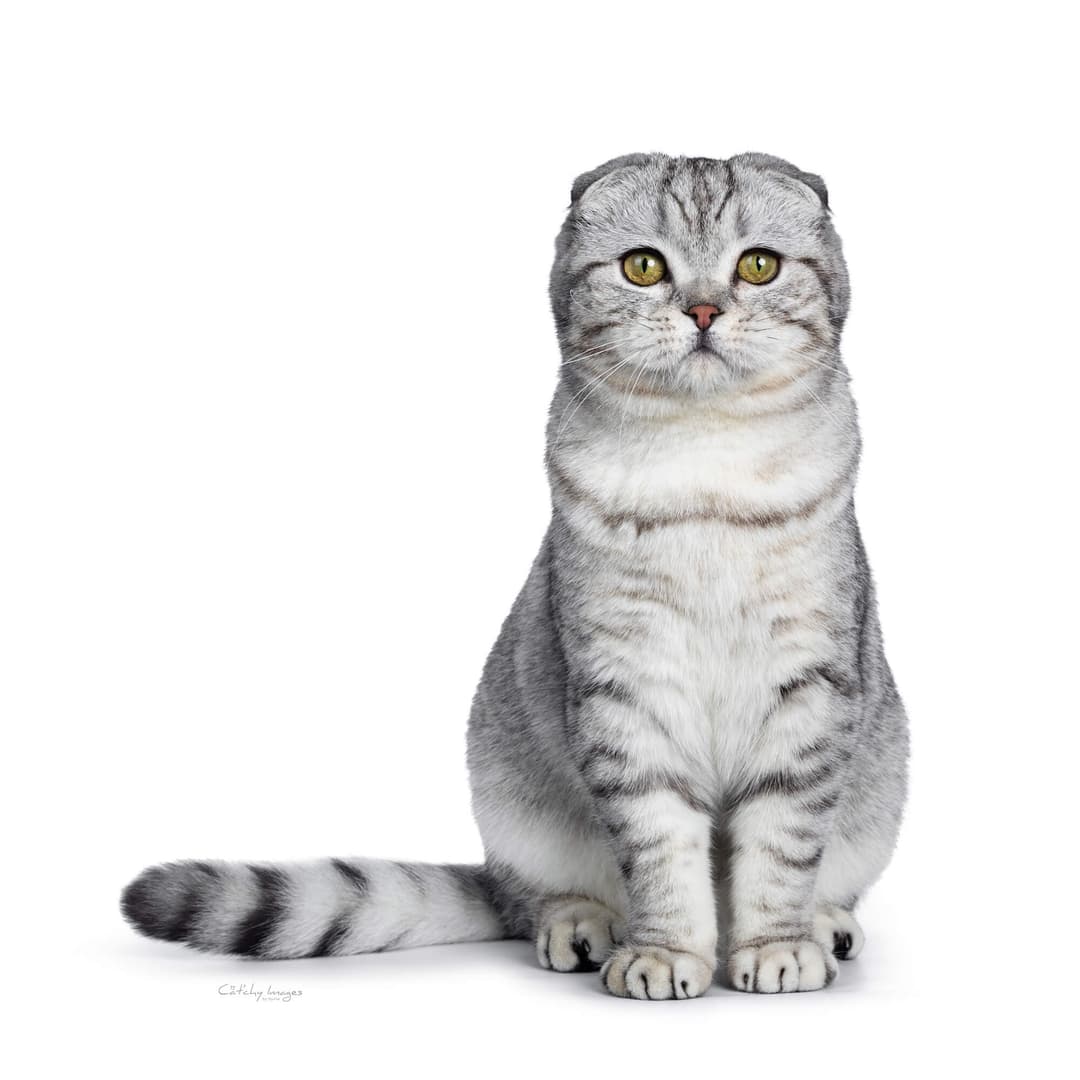Discover your cat's connection to this breed and 20 others


Discover your cat's connection to this breed and 20 others



Meet the only cat who has been described to resemble an owl: the enchanting Scottish Fold! These captivating felines are known to exhibit an unusually high level of affection and are characterized by the distinctive feature of forward-folded ears. At birth, all kittens will have straight ears. Those who carry the fold gene will begin showing this distinctive feature within 21 days. The rest of the kittens who don't develop the characteristic fold are known as "Straights". Scottish Folds come in all coat colors, lengths, and patterns.
The Scottish Fold is a medium-sized feline breed, typically reaching 6-9 lbs (females) and 7-10 (males). They have a rounded face, with large eyes and a short, gently curved nose. These beauties can be shorthaired and longhaired, and come in nearly every coat color observed in domestic cats. Their coats are soft, thick, and dense.
In 1961 in Perthshire, Scotland, a shepherd named William Ross noticed Susie, a beautiful white cat with unusually folded ears. When Susie had kittens with a local tom, William Ross adopted one of the kittens whom he named Snooks, and thus began the development of the new breed. It wasn't until 1971 that the breed made its first appearance in the U.S.
The Scottish Fold is a very social and friendly cat. They do not like being left alone, as they love hanging out with their favorite humans. They will gladly engage in games with you and follow you around from room to room. Although quite agile, Folds are only moderately active, and are notorious for taking long cat naps while sprawled out on their backs.
Scottish Folds are prone to polycystic kidney disease (PKD) and cardiomyopathy. These cats are also at risk for developing degenerative joint disease, as the fold is caused by a condition called osteochondrodysplasia (OCD). Homozygous folds are typically more severely affected than heterozygous folds, and usually at an earlier age. The average life expectancy of the breed is 15 years.
Scottish Folds once had a different name. Did you know that these cats were originally called "Lop-eared" or "Lops" after the lop-eared rabbit? Yep! It wasn’t until 1966, when the breed was finally registered with the Governing Council of Cat Fancy (GCCF), that "Scottish Fold" became their official name.
Longhaired variants are known under unusual nicknames. While some may simply call them Scottish Fold Longhairs or Longhair Folds, these variants of the floppy-eared breed are also famous under the names Highland Fold and Coupari.
They’re not as popular in Europe as they are in America. Despite their European heritage, Folds are more popular in America than they are in their home continent. As mentioned above, GCCF accepted the breed in 1966. However, in 1971, they forbid pet owners from registering more folded kitties because of health issues associated with to their unique physical features. They worried about the joint disease, ear mites, infections, and deafness. The cat is still not shown in Europe to this day. Cat Fanciers' Association, however, gave provisional status to the Scottish Fold in 1977. Since then, they’ve become extremely popular in the U.S. Breed fans are sometimes wait-listed and end up paying a lot of money for a floppy-eared kitten.
They’re famous for weird poses. It may be a weird thing to be famous for, but Scottish Folds are notorious for their unique range of active and resting positions. You might often catch them lying on their backs with all fours in the air, standing on their hind paws, or chilling in what is called the "Buddha" position while sitting.
They’re frequent stars. The Scottish Fold was featured in the novels, "The Cat Who Went to Paris" by Peter Gethers and "The Bone Bed" by Patricia Cornwell. They have also made appearances in the anime series "Beyond the Boundary" and the Disney franchise "Kingdom Hearts." Oh, and Meredith and Olivia, Taylor Swift’s two Scottish Folds, have a few of their own fans out there, too!
Recommended by top vets with decades of experience
21 breeds
64 genetic health markers
50 genetic trait markers
